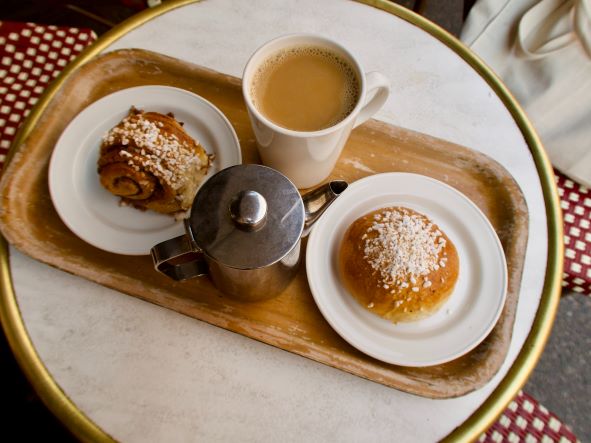Sweden is country which is located in the northern part of Europe and is a close neighbour of Norway to the West and Finland to the East, of which all three belong to the Nordic Countries, but only Sweden and Norway belong to the Scandinavian Countries, and Sweden alone belongs to the European Union. When it comes to the common characteristics they share, it is not only a common culture and history, but also a similarity in languages. The Finnish language is different than Swedish or Norwegian, whilst Swedish and Norwegian share some characteristics.
Speaking about Sweden only, we associate it often only with the Ikea furniture chain or the love of coffee and Fika. Walking further into the kitchen, you will find Sweden’s most popular, and not sweet, delicacy – herring.
Let’s start with coffee
Everyone has probably heard that Scandinavians love coffee and drink a lot of it; they are actually the top coffee-drinkers in Europe. There is a specific ritual related to coffee, known as the ‘break’ related to drinking coffee, which is a common phenomenon in Sweden. This tradition appears both in everyday life – for example during a coffee break in the office, but this aspect of life also appears in Swedish literature.
What is Fika? Is it only a regular coffee break? Not exactly. Fika is not only coffee, but also various types of accompanying sweetness, such as the popular cinnamon buns (kanelbullar). In the Polish language we don’t have good <a href=”https://www.atominium.com/en”>localization</a> for the word Fika, and this word is not always translated correctly. The closest word to Fika is the British ‘tea time’. Fika is something more than break, drinking coffee and eating something good – it’s free time which is spent on casual conversations, whether at work, between employees, or at home with family or neighbours. It is a ritual that depends on the relations between them. As you can see, <a href=”https://www.atominium.com/en”>localization</a> of this term is needed in the translation process.

Next is IKEA
IKEA, I guess, is more popular than Fika, because while not everyone might be a coffee lover, everyone at least once in their life has been and bought something at IKEA.
Its first shop was built in the city of Älmhult in Sweden. Today, IKEA has around 430 building, which are located in many countries. It is also a company that engages into initiatives to make people aware of how to care about our planet. For example, the challenge called ‘Do with something’.
This not only gives advice about what can be done for our planet, but also what you can do with your old furniture. How to give a ‘second life’ to the old pieces located in your home or basement. Customers can give theirs to the Goods Recovery Department.
Pickled herring day
And finally, something that is hardly ever talked about. And even though this treat is equally common and popular in Poland, our Polish herring can hardly compare to the Swedish one,
for which there is even a holiday!
Surströmmingspremiären is a special day in Sweden, which is celebrated on the third Thursday of August. This celebration is three days before the ‘Crayfish Feast’ (kräftskiva). Its translation from the Swedish language is ‘the Day of pickled herring’, whose history began in the XVI century.
Polish herring is completely different to the Swedish one. The one found in Scandinavia always stinks and its process of preparation and the fermentation process is long and specific, because it lasts up to six months, in which the fish itself hangs out in the sun in barrels of salt before being canned for another month. Pickled herring production has a location on several islands off the coast of the Gulf of Bothnia. It is interesting to note that you are not allowed to take a can of Surströmming on a plane.
Scandinavians might look a bit cold and withdrawn to us, but actually they are a nation which likes spending time in their friends’ company with good coffee and sweets.
They are happy to share their ideas with others and have a dish to love or hate.
For them, the important thing is tradition, but not only the ‘original’ one, but also their ‘new edition’.
Another important thing in the lives of most Swedes is undoubtedly nature.
(translation K.S.)







